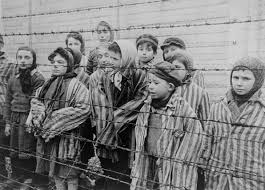Features
From Darkness to Light – December

By ORLY DREMAN Two months have passed since that black Shabbat on Oct. the seventh.
When I am walking with my grandchildren and they see photos of the hostages in every corner they tell me that these are pictures of people who are lost and that if we meet them we should report this to the police. I explain to them that these are people who lived very close to the border and when the war started, the enemy came and took them. Our brave soldiers are doing everything possible to bring them back.
Sirens are still sounding all around the country a few times a day with the exception of Jerusalem.
The whole country is experiencing psychic trauma and nobody is smiling. People are experiencing difficulties in sleeping, nightmares and it is hard to concentrate. When there are external noises like a truck passing by, a door slamming, something falling on the floor people experience palpitations and their stomach shrinks.
People are getting chest pain, stomach aches, headaches, back pains all stemming from stress. They obsessively check ten times that the door is locked and sleep with the lights on.
We all have a sense of existential threat and that we feel powerless.
The whole country was exposed to what happened either directly or indirectly.
We are traumatized but being partners to the same fate we desperately cling together for support.
Last week our friend notified us that his son was injured in the battlefield in Gaza and is now hospitalized and paradoxically he was “glad” because his son is out of the battle field for now and next to the family.
The mass media constantly bombards us with news about the war. Even broadcasters cry in the face of ongoing interviews with victims. When a celebrity rarely appears to entertain, he/she cries.
Everyone is worried, depressed and angry. Even help givers need help.
Psychologists and social workers are learning to treat the ongoing distress. There is no precedent to compare it with, even the psychology books will have to change.
We are still digesting what happened because of the horrendous atrocities and prevailing uncertainties after the events of Oct seventh. We experience the feeling as if the kidnapped are our own families. People identify strongly with the hostages whether adults or children. The satanic behavior of the terrorists and the ongoing hostilities are resulting in the hostage situation significantly deteriorating. and there is NO Red Cross to go in and check on them. We feel time has frozen and we got stuck on Oct. seventh. Those events are still reaping their tragic results.
The returning hostages are completely transformed and people who are here are not the same.
In the narratives of the returned hostages the situation described is even worse than expected.
The children who returned are still whispering out of fear. At the dinner table they wait till everyone else eats because they want to make sure that others get their portions.
A person shot in the head by the terrorists paradoxically may be the lucky one because they could have been burnt alive, brutally raped, or die after their body parts were cut off.
Hundreds of bodies could only be identified by archeologists who searched in the ashes for human remains.
Our soldiers in Gaza are in good spirits because they are in combat action. Masses of people are volunteering in order not to feel powerless. This is why we volunteer where ever we can: The neighborhood guard, packing goods for soldiers and evacuees, participating in demonstrations for the hostages and organizing neighborhood markets to sell the goods of farmers from the south whose families were murdered, kidnapped, missing, or their homes burnt and they are just trying to save the produce of their fields since all the foreign workers who used to work in the fields and remained alive left the country.
The IDF is a people’s army which means that since hundreds of thousands are recruited, the economy is badly affected. Yesterday, we went to a Hanukka show of our granddaughter. The crowd was mostly mothers because the fathers are recruited and the headmaster showed up in the middle directly from the combat duty in order to see his students. It was very exciting everyone stood up and applauded.
It is difficult to see how the world turned against us. Even the foreign ministry took out a travel warning, that citizens should not travel to eighty countries around the world where we formally were permitted to travel.
In spite of it all we still want to believe that goodness still prevails in the world. We are dreaming to get back to some kind of routine and normality and hope the day will come when this terrible period will be behind us.
To all our supporters we wish a Happy Chanuka and Seasons Greetings!
May the festival of lights bring us out of the darkness.
Orly Dreman is a 10th generation Israeli. Her cousin, Ruvi Rivlin, was a former president of Israel. Orly’s father was a diplomat who served both in North America and in Europe.
By profession Orly is an English teacher. She has dealt with children suffering from ADD.
Since childhood, Orly has been involved in voluntary work with the disabled, the challenged, new immigrants, the elderly and others.
Features
Famous Gambling Scandals and Controversies: Allyspin Casino Opinion

The gambling industry is full of scandals and controversies. There are various cases of fraud and manipulation schemes. That is why it is very important to pay attention to reliable gambling sites like Allyspin online casino, which follows the rules of responsible and safe gambling for its fans. Research shows that more than one trillion dollars are bet worldwide every year. That is why it is very important to be able to distinguish safe and reliable sites from fraudulent ones.
Casino Fraud and Money Laundering
Honest and secure gambling websites like Allyspin casino are careful not to fall victim to scammers. However, many sites are often targets for money laundering and fraud. Due to the large volume of transactions and cash flow, it is difficult to track all the directions of the flow of funds.
Among the largest scandals, the Crown Resorts in Australia stands out. An investigation showed that the casino was used to launder millions. Macau casino networks have also been involved in high-profile scandals. Thus, the region has faced close attention due to allegations of organized crime and laundering billions of dollars through betting. In addition, there are many money laundering cases in Las Vegas casinos.
There are many different methods of money laundering in online casinos. For example, fraudsters use chip dumping, cashing out winnings. Also, structuring is used by entering small amounts that are difficult to track over time.
Gambling Industry Reforms after Scandals
Sites like Allyspin casino do everything possible to prevent such scandals. Thus, the latest security measures and solutions are actively implemented:
Advanced fraud detection based on artificial intelligence. With the help of modern algorithms, monitoring of suspicious behavior when placing bets is simplified.
Strict identity verification protocols. Users need to confirm their identity before being able to withdraw funds.
Secure data using blockchain. Modern online casinos use cryptocurrency payments and blockchain in order to reduce the risks of unauthorized access to transactions.
Responsible gaming programs are also actively implemented. Online casinos offer the option of self-exclusion, as well as provide full support to players. All this allows you to minimize possible risks in the process of gambling and ensure the transparency of payment transactions.
The Future of Casino Security and Fraud Prevention
Large sites like Allyspin casino continue to expand, introducing enhanced security and fraud prevention tools. In the near future, such unique features will be available:
Fraud detection systems based on artificial intelligence and machine learning. Automation of processes helps to detect any fraudulent facts much faster compared to traditional methods.
Blockchain technology and cryptocurrency. Cryptocurrency payments help not only simplify payments for users, but also reduce the risks of unauthorized transactions.
Biometric and multi-factor authentication. Thus, users undergo unambiguous identification, which reduces the risk of account use by fraudsters.
Cybersecurity plays an important role in online casino gambling. Modern sites implement the latest mechanisms to combat fraud, ensure fair gaming process and fully protect honest players.
Features
Canada Is Failing Its Students on Holocaust Education — Here’s What Must Change

By EMILY (surname withheld by request) We received the following article from a third-year Health Sciences student at Western University, who wrote that as “a Jewish student, I have seen firsthand how Holocaust education in Canada is falling short and how that failure is contributing to fear, misinformation, and rising antisemitism on campuses like mine.”
Despite curriculum requirements, Holocaust education in Canada is alarmingly inadequate. A recent survey found that nearly one in five young Canadians believe the Holocaust has been exaggerated. This highlights a dangerous gap in historical understanding, leaving students vulnerable to misinformation, denial, and rising antisemitism. If Canada is serious about combating hate, it must take Holocaust education far more seriously.
When asked whether Holocaust education in Canada is lacking, Professor Hernan Tessler-Mabe, historian and coordinator of Jewish Studies at Huron University, did not hesitate: “You are 100 percent correct.”
While most provinces claim to include Holocaust education in their curricula, the programming and implementation of curriculum tends to be inconsistent and inadequate. A student’s understanding of one of history’s greatest atrocities depends heavily on where they go to school, which teacher they have, and whether their school offers substantive instruction. The result is misinformation, denial, and rising antisemitism.
Avoiding Holocaust education allows dangerous myths and conspiracy theories to spread unchecked. Without an understanding of the Holocaust and the centuries of antisemitism that preceded it, students are ill-equipped to identify modern antisemitism in the world around them. This antisemitism manifests into everyday conversation, online spaces, and political discourse.
To address this crisis, Canada must act with urgency in three key areas. These include consulting experts, confronting difficult material, and properly training educators.
First, schools and provincial governments must consult those who specialize in Holocaust history and education. “It is the most important thing,” Dr. Tesler-Mabé, Associate Professor and Coordinator of Jewish Studies at Huron University says. He points out, “You cannot just throw it into a general history class and assume it will be taught well. You need people who understand both the history and how to teach it.”
Second, we must accept that the subject is deeply disturbing and cannot be made comfortable. Dr. Tesler-Mabé iterates, “We have to accept that parts of this will be traumatic or triggering.” “Obviously it depends on grade level, but if students do not feel disturbed by it, they will not understand it. That discomfort is part of the learning.”
Third, teachers must be prepared. Many educators may feel unequipped to teach this material and either gloss over it or skip it altogether. Training programs and partnerships are essential. In Ottawa, the Centre for Holocaust Education and Scholarship (CHES) works to connect schools with survivor testimonies and support resources, but broader reach and investment are needed.
Dr. Tesler-Mabé explains, “We have to teach the teachers, especially now that we are losing survivors. That raises a whole new concern. How do you teach something this heavy, this complex, without first hand testimony? Educators need the tools, the background, and the sensitivity to do it well.”
Some may argue that Canada already does enough in this area. After all, Holocaust education is present in some curricula, and many students visit Holocaust museums or hear from survivors. But occasional exposure is not enough. The widespread prevalence of Holocaust denial and the proliferation of antisemitic conspiracy theories underscore significant shortcomings in current systems designed to combat such misinformation. A 2022 report by UNESCO and the United Nations, in collaboration with the World Jewish Congress, found that 16.2% of Holocaust-related content on major social media platforms either denied or distorted fundamental facts about the Holocaust. A standardized, rigorous, and mandatory approach is the only way forward.
Holocaust education is not just about history, it is about safeguarding the future and combating antisemitism in modern manifestations. When students understand how propaganda, scapegoating, and dehumanization led to one of history’s darkest chapters, they are better equipped to recognize and reject hatred in all its forms. Without a solid foundation in Holocaust education, antisemitism continues to fester, not just in online spaces, but within universities, workplaces, and public discourse. We are already seeing the consequences of unchecked Holocaust denial and rising antisemitism, from bias in professional spaces to hostility on university campuses. As a Jewish student at Western University, I have seen fear take hold among my peers. Friends who once wore Stars of David or spoke openly about their heritage now hesitate to do so. I have also begun to question whether it is safe to express my identity. With the last generation of Holocaust survivors passing, the responsibility to preserve their stories and the lessons they teach rests with all of us. If we do not confront this crisis at its root, we risk allowing history to repeat itself in new and dangerous ways.
Canada is failing its students. In doing so, it is failing the promise of Never Again. The question is not whether we should strengthen Holocaust education, but why we have not already.
Features
Anna Kaplan one of Winnipeg’s youngest personal trainers

By MYRON LOVE It is always uplifting to read (or, from my perspective, to write) about people who have been able to reinvent themselves – and even more so when such an individual can use her own transformation to inspire others. Such is the case with Anna Kaplan, a young (21) personal trainer whose passion for physical fitness grew out of personal troubles as a teenager.
“I had a feeling of being excluded,” says the daughter of Kevin and Roxanne Kaplan. “I was afraid that I was missing out. I was losing friends. I had developed some bad habits and was at a real low point in my life – at rock bottom.”
At 18, Kaplan determined to change her life. She began working with a personal trainer and going to the gym. She also changed her dietary habits.
“Before long, I was feeling better mentally and physically,” she recalls.
Two years ago, wanting to help others struggling to improve their lives, Kaplan opened A Plus Fitness. On her Facebook page, she notes that “When you sign up for online training with A Plus Fitness, you’re not just getting a workout plan — you’re getting full access to our all-in-one training app designed to support your transformation every step of the way.”
Kaplan started A Plus Fitness strictly as an online business for which she developed her own app. “I started building my client base initially by contacting friends and acquaintances via a social media platform to see what interest there might be out there,” she says.
With demand for her services growing, about a year ago she began working with clients in person out of a gym on Portage Avenue. In just two years, she reports, business has grown to the point where she has had to hire a second trainer.
“I work with people ranging from 18 to 65 plus,” she says. “The number of clients has tripled in the last year and I have been able to help over 100 clients to get into shape and change their lives.”
The reviews have been outstanding with many giving the young fitness trainer a 5 out of 5 rating. Says one client: ”I’ve been training with Anna for a while now, and it’s been an amazing experience! She really takes the time to understand my goals and pushes me in the best way possible. Since working with her, I feel stronger, more motivated, and more confident in my workouts.”
Adds another: “Over the past year, A Plus Fitness has completely transformed my approach to working out, helping me tone my body and build strength in ways I never thought possible. Anna’s guidance and personalized training plans have made a huge difference in my progress, pushing me to achieve results faster than I expected.”
Kaplan feels good that among those she has been able to help have been her own mother, Roxanne Kaplan, who says that ”I’ve always had some sort of fitness routine in my life. I followed along with the fitness videos with the weights that were recommended – I’d go through phases but never stuck to it. With Anna’s coaching and sticking to her program, I see muscle definition that I’ve never had before. I feel better, more confident, and well rested.”
Kaplan further points out that, in additions to helping people through her business, she is also community minded. “I have helped with several fundraising events in the Jewish community,” she reports.
Most recently, she helped raise money for the Reid Bricker Mental Wellness Fund in memory of a relatively young member of our community who struggled with mental health for several years before committing suicide 10 years ago. The fund aims “to increase the availability of mental health supports and education across the province while ensuring that individuals and families facing mental health challenges receive the support they need when they need it the most.”
Next for Anna Kaplan and A Plus Fitness is to open her own location at some point in the next few years.
Readers can contact Anna at 204 391-5832 or mail her at admin@aplusfit.ca.



You must be logged in to post a comment Login